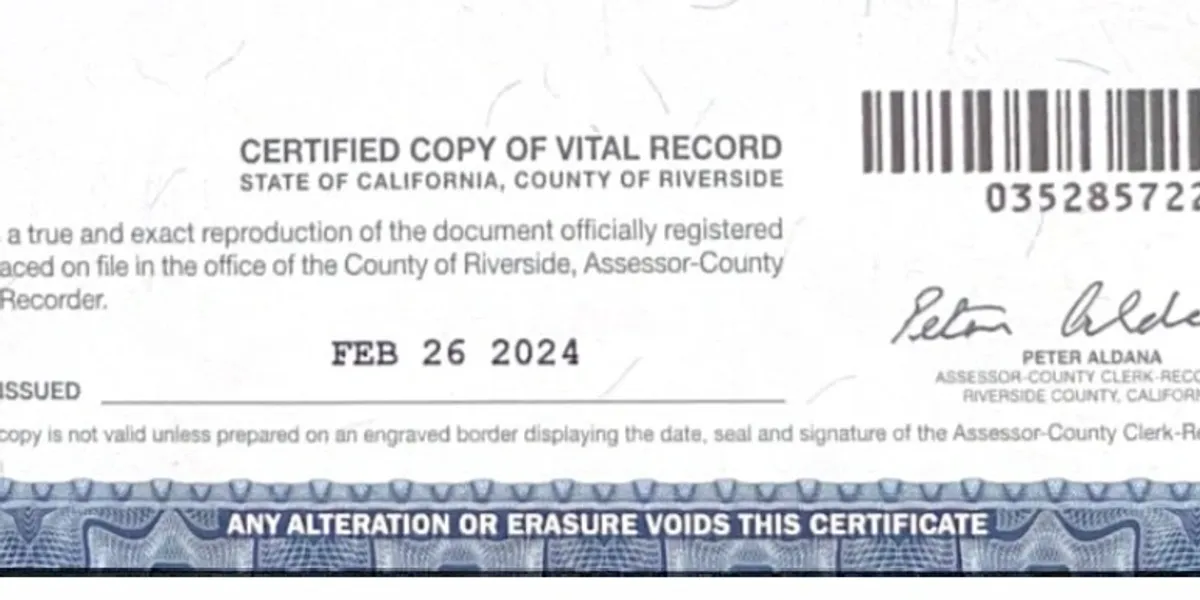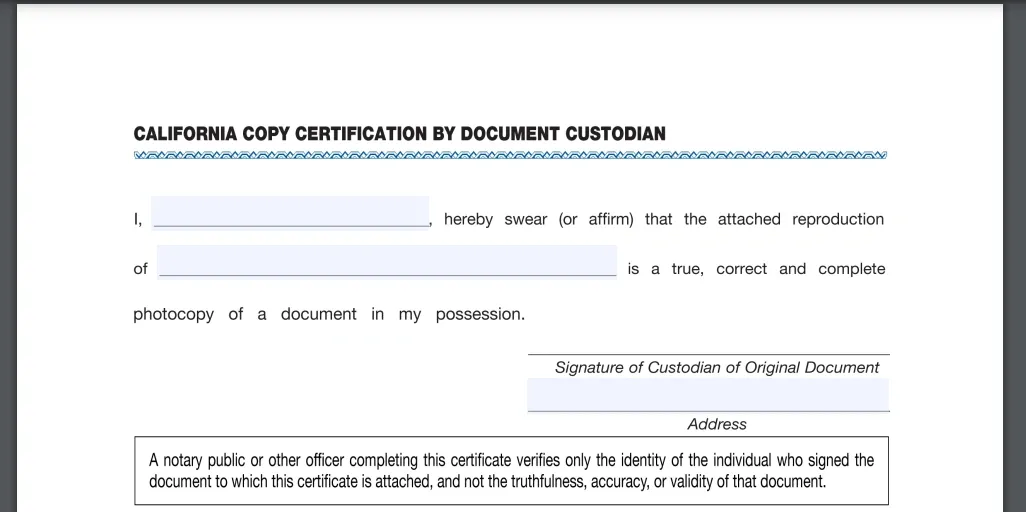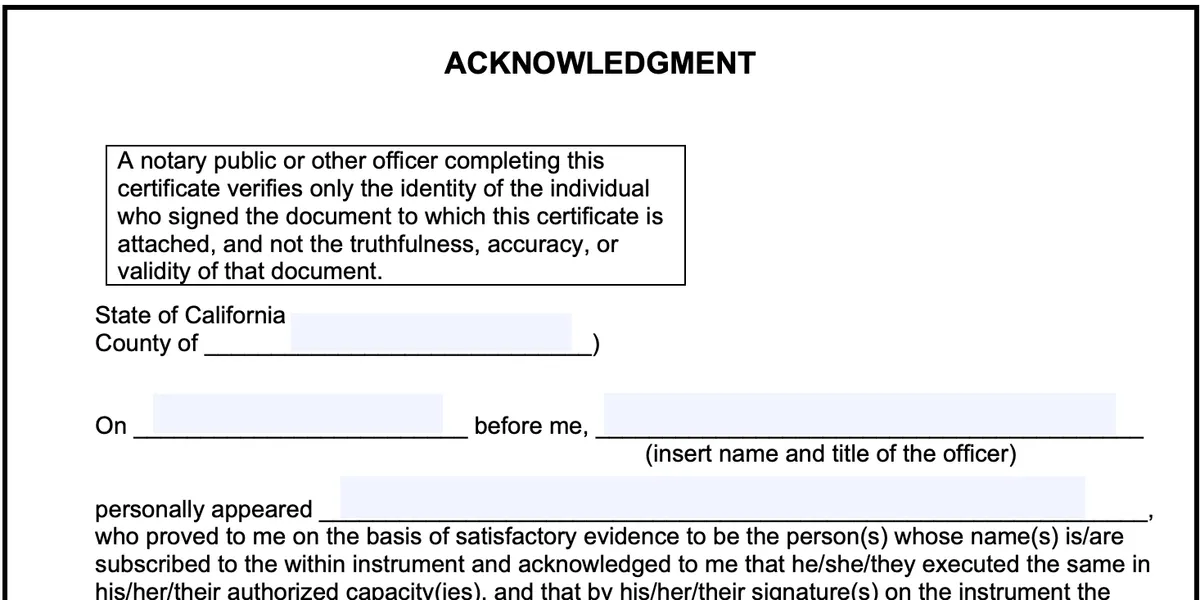Vital Record Apostille
All Vital Records (Marriage, Birth or Death Certificates) that are being Apostilled must be a certified copy issued by the County. The Vital Record will have in writing “Certified Copy of Vital Record” on the bottom of the document if its a certified copy.

When dealing with the authentication of vital records for use abroad, the importance of adhering to strict guidelines cannot be overstated. If you need to apostille marriage, birth, or death certificates, it’s crucial to ensure that these documents are properly prepared and certified before submission. Here’s a more detailed explanation of the process and requirements:
Understanding Vital Records Apostille
An apostille is a form of certification provided under the Hague Convention of 1961, which is recognized by countries that are participants in the agreement. It serves to authenticate the seals and signatures of officials on public documents such as marriage, birth, and death certificates, so they can be recognized in foreign countries that are members of the Hague Convention.
Requirement for Certified Copies
For a vital record to be eligible for an apostille:
• Certified Copy Requirement: The document must be a certified copy issued by the County Clerk or the State Registrar. It is not sufficient to have a notarized copy made by a notary public. A certified copy is an official government-issued copy of the original document, which guarantees that it has been copied and issued by an authorized department, maintaining its legal status.
Identifying a Certified Copy
• Certification Mark: To confirm that your vital records are suitable for the apostille process, look for a specific mark or statement. A true certified copy will typically bear a stamp or an inscription that reads “Certified Copy of Vital Record.” This annotation is usually located at the bottom of the document.
• Signatures and Seals: The document should have a signature from the registrar or the issuing authority, along with the official seal of the issuing agency. This seal and signature are what the apostille will authenticate.
Common Uses for Apostilled Vital Records
• Marriage Certificates: Often used for proving legal marital status abroad, changing names, or settling estates.
• Birth Certificates: Required for school enrollment, passport applications, and eligibility for citizenship or residency in a foreign country.
• Death Certificates: Used to settle estates, claim life insurance, and for other legal purposes after the death of an individual abroad.

Non-Vital Record Documents
Documents (Certifications, Diplomas, Licenses, Passports, Transcripts) that are not Vital Records that are being Apostilled must be certified by a Notary Public.
When it comes to securing an Apostille for documents that fall outside the realm of vital records (such as birth, death, and marriage certificates), the process involves several nuanced steps. These documents, typically including certifications, diplomas, licenses, passports, transcripts, power of attorneys, letters, agreements, and contracts, require notarization prior to the Apostille certification. Here’s a detailed look at each step involved in preparing non-vital record documents for an Apostille:
Understanding Non-Vital Record Documents
Non-vital record documents are those that do not register life events with governmental authority but are still critical for various personal and professional reasons. Common types include:
• Educational Documents: Diplomas, degrees, transcripts, and educational certificates that evidence one’s academic achievements.
• Professional Documents: Licenses, certificates of accreditation, and qualifications that are essential for practicing various professions.
• Legal Documents: Power of attorneys, contracts, agreements, and letters that are often used in legal, business, and personal transactions.
Step-by-Step Process for Apostille of Non-Vital Records
1. Document Preparation:
• Ensure that all documents are complete and accurate. Any errors or omissions can cause delays in the Apostille process.
• For documents such as agreements, contracts, and letters, make sure they are on company letterhead if applicable and contain all necessary signatures.
2. Notarization:
• The document must be certified by a Notary Public as a true copy or must be signed in the presence of the Notary.
• For documents like Power of Attorney, the principal must sign the document before a Notary.
• It’s important to ensure that the Notary includes all required notarial language and seals, as the absence of these can lead to rejection at the Apostille stage.
Notary Acknowledgement
Documents that require notarization that are being Apostilled must have the valid Notary Acknowledgment or Jurat attached to the document.

An apostille certifies the document(s)
Apostilles authenticate the seals and signatures of officials on public documents such as birth certificates, court orders, or any other document issued by a federal agency or certified by a U.S. or foreign consul. An apostille certifies the document(s), so the document can be recognized in foreign countries that are members of the 1961 Hague Convention Treaty. We only issue apostilles for federal documents to use in countries that are members of the 1961 Hague Convention.
Before submitting documents to us, you must:
1) Notarize each document in front of a notary public:
- Using a notary commissioned by the county? Certify your document at the clerk of court then the secretary of state.
- Using a notary commissioned by the state? Certify your document at the secretary of state.
If you do not have the correct notarization(s) before you submit your documents, we will not be able to process your request.
2) All seals and signatures must be originals
- We cannot accept copies unless they are “true certified copies” from a notary public. Birth, marriage, and death certificates, divorce decrees, court documents, and federally-issued documents cannot be certified by a notary public as “true copies.” These documents must be certified by the secretary of state.
3) All documents in a foreign language must be translated into English by a certified translator and notarized as a true translation.
It is a long established fact that a reader will be distracted by the readable content of a page when looking at its layout. The point of using Lorem Ipsum is that it has a more-or-less normal distribution of letters, as opposed to using ‘Content here
An Apostille is a certificate that authenticates the signature of a public official on a document for use in another country. An Apostille certifies:
- the authenticity of the signature of the public official who signed the document,
- the capacity in which that public official acted, and
- when appropriate, the identity of the seal or stamp which the document bears, e.g. a notary public seal.
The Apostille does not validate the contents of the document.
For birth and death certificates, the California Secretary of State can issue an Apostille for the signatures of:
- county clerks and their deputies,
- county recorders and their deputies, and
- the State Registrar (California Department of Public Health).
If your birth or death certificate was issued by a city- or county-level agency and has the signature of a Health Officer or County Registrar (e.g. Local Registrar, Registrar of Vital Records), prior to presenting to our office for authentication, one of the following may be required:
- have that birth or death certificate certified by the county clerk’s office in the county in which it was issued, or
- obtain a certified copy of that birth or death certificate from the county recorder or State of California Department of Public Health.
The signature, name, and title of the public official can be found at the bottom of a birth or death certificate.
Any individual can request an Apostille on behalf of themselves or on behalf of anyone else. Additionally, the requester does not need to be related to any person(s) named in the document.
For example, Louise is Alfred’s neighbor, and they are not related in any way. Alfred can remain at home while Louise takes Alfred’s document to the Secretary of State’s office and submits the request on Alfred’s behalf.
Apostilles can only be issued for documents to be used outside the United States of America. Accordingly, we do not issue Apostilles for Puerto Rico, Guam, United States Virgin Islands, Northern Mariana Islands, American Samoa, or any other American territories or possessions. Generally, the notarial act is sufficient for use in any American territory or possession.
If the notarization of the document is in English, the California Secretary of State can issue an Apostille. The rest of the document can be in any other language.
Additional Information:
“The ABCs of Apostilles” (PDF) brochure provides basic information about the Apostille Convention and the Convention’s operation that has been prepared by the Permanent Bureau (Secretariat) of the Hague Conference on Private International Law and is provided with the Permanent Bureau’s permission.